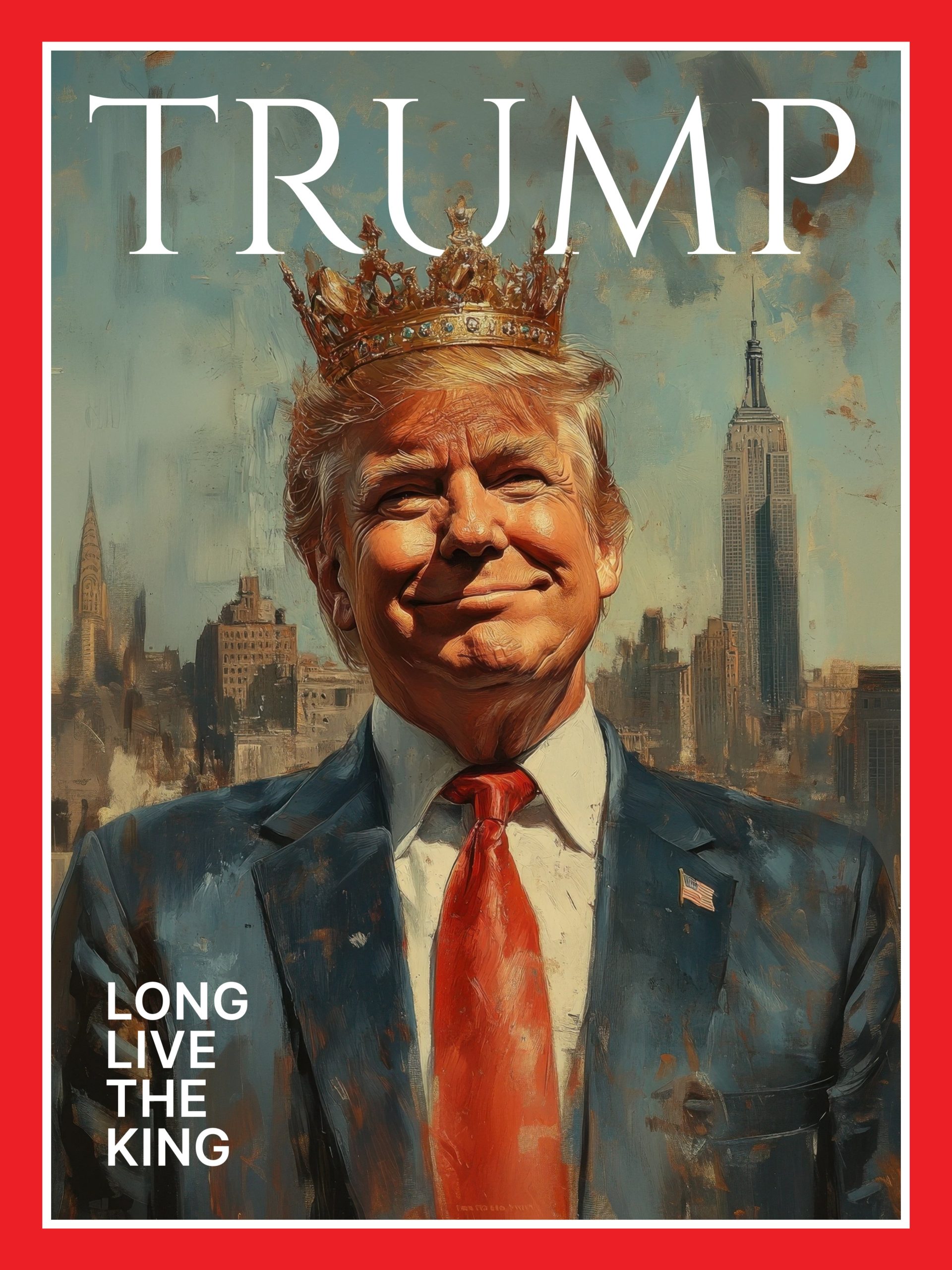We are months into the Trump presidency, and we have seen major changes being made to every sector of national policy. These changes, just like the ones that were done during his first term, have polarized the country once again. Many critics are even accusing President Trump of being a dictator. But is there any merit to these claims?
Months ago, I wrote an article about the traits that all autocratic leaders usually share. Today, let us look at what has been done so far in the second Trump presidency and see whether these symptoms are present within it.
The Strongman Image
When people tend to envision authoritarian leaders, they tend to conjure up images of military parades, dictators giving fiery speeches, and an overall macho personality.
President Trump does seem to give off this image. On June 14th, there will be a military parade in honor of the U.S. Army’s 250th anniversary. Military parades are quite rare in the United States – there has not been one since 1991, when a parade was held celebrating the U.S.-led coalition’s victory in the Gulf War. It has been known that Trump has been asking for a military parade ever since his first term, and this time, the Pentagon will not refuse like it did last time. The parade will also happen to align with the president’s 79th birthday.
The president has flexed his muscle regarding the illegal immigration problem, where he has cracked down even heavily than in his first term. He has also sought to intimidate other nations, such as his arguments with Ukrainian President Zelensky and South African President Ramaphosa in the Oval Office, and his subsequent imposition of tariffs as retaliation against other countries. Such moves are done in a way to give off the impression of a tough leader. Trump has even portrayed himself as a king, declaring himself to be “the federal law”, and, similarly to his first term, has continued to express affinity with authoritarian world leaders such as Russia’s Vladimir Putin, North Korea’s Kim Jong-un, and China’s Xi Jinping, describing them as close friends.
The Problem Solver
In a pattern consistent with the rhetoric from his first term, Trump has continued to blame illegal immigrants for the crimes and diseases they supposedly bring into the country. He has characterized them as “invaders” and has used this as justification to use archaic laws such as the Alien and Sedition Acts from the 1790s to speed up deportations. This is even though Americans commit more crimes than illegal immigrants. The president has been outright cruel in his treatment of illegal immigrants, sending hundreds of migrants to a brutal megaprison in El Salvador and attempting to send several of them to the notorious Guantanamo Bay prison camps. He has accused many of them of being involved in gangs and drugs, even though in many of their cases, the evidence is scant. The Trump administration’s insistence on law and order is hypocritical given its pardons of all January 6th rioters, even those who had assaulted police and destroyed federal property.
Another problem Trump loves to bring up is his criticism of diversity, equity, and inclusion programs (DEI). He has used the concept of DEI as a scapegoat when attacking incompetence and inefficiency in government, despite the lack of evidence. For instance, he attacked the Federal Aviation Administration’s DEI initiatives in the wake of the plane-helicopter collision in Washington, D.C., which killed 67 people. The president has issued executive orders rolling back so-called DEI programs in the federal government, and some companies and top colleges have also done so in a bid to please the Trump administration. Critics have said, however, that Trump’s assault on DEI is merely a bid by conservatives to defund agencies that they have long wished to get rid of.
Dismantling Institutions
This is perhaps the most present symptom of authoritarianism within the second Trump presidency. President Trump has ordered sweeping reorganizations of the government and has placed loyalists into office. This can be seen in his mass firing of inspectors general (officials who are supposed to oversee government agencies and hold them accountable), effectively shutting down USAID, directing a gradual closing down of the Department of Education, and making it easier to fire civil servants. Expanding on the conservative-backed Unitary Executive Theory, which states that the president has sole authority over the executive branch, the president has asserted the right to fire virtually any federal official. For instance, he has fired Biden-appointed members of independent boards despite federal laws preventing him from doing so. President Trump has increasingly sought to tighten his grip on the executive branch and has even appointed loyalists to traditionally nonpartisan offices in the military and the FBI. He purged the Justice Department of what he perceives as disloyal employees and has stacked it full of loyalists as well.
The president’s attempt to assert control over the federal government also extends to the judicial branch, which has been involved in the freezing of numerous Trump policies and initiatives during his second term. The judiciary appears to be the sole remaining independent branch of government left, now that the executive branch is steadily stacked with pro-Trump loyalists and the legislature is controlled by Trump’s Republican Party. President Trump has characterized the judiciary as “tyrannical” and “rogue” and has called for the impeachment of at least one judge (something which Chief Justice John Roberts swiftly pushed back on). The administration has also ignored certain court orders and has begun selecting loyalists to fill seats in the judiciary and make it more pro-Trump. Vice President J.D. Vance declared that “judges aren’t allowed to control the executive’s legitimate power”, and House Republicans have even introduced a section in a recent funding bill that would limit judges’ powers in issuing nationwide injunctions, something which has been an obstacle to the president’s agenda.
The president’s dismantling of institutions has also extended to other non-government institutions. Regarding the media, the White House announced that it would now be picking which news organizations and reporters would be allowed to cover the president. This is spun off from their early barring of the Associated Press from White House events following its refusal to call the Gulf of Mexico the Gulf of America. One of their new initiatives is a seat for “new media”, which is their term for non-traditional sources of media. While this would normally be a good idea, the “new media” seat has often been filled by “correspondents” who are often overly sympathetic to the administration’s policies, with their questions often being more likely to cover positive aspects of the Trump presidency as opposed to the more pressing, negative issues of the day. Beyond the White House Press Corps, Trump has hit media outlets with lawsuits regarding stories he does not like. Trump’s appointee to lead the Federal Communications Commission is investigating PBS (Public Broadcasting Service) and NPR (National Public Radio), outlets the president perceives as against him. The administration has laid off almost all employees of the government-funded Voice of America – which began broadcasting in 1942 to fight off Nazi propaganda and continues to operate to advance American soft power – and has cut off funding to other government-operated media outlets that advance similar causes to that of VOA.
The president has also sought to suppress dissent from educational institutions. Recently, Trump has been engaged in defunding educational institutions that he says have anti-semitic and left-wing policies. This can be seen in the spat between the Trump administration and Harvard University, where the administration has canceled federal funding to the university’s research programs and has even attempted to cancel Harvard’s ability to enroll international students. The Trump administration has leveraged its ability to freeze federal funding to force colleges to comply with its policies, which often involve suspending and expelling students who have engaged in pro-Palestinian protests, which the administration believes support terrorism. In line with the Trump administration’s science policy, the White House has also canceled funding of research related to topics such as climate change, vaccines, LGBTQ topics, and COVID-19. Hundreds of academics and students have been deported or threatened with deportation for simply expressing anti-Trump sentiment on social media.
In addition to targeting colleges, the Trump administration has also attacked law firms and lawyers who had previously represented anti-Trump positions. This has included limiting the ability of attorneys to enter the government buildings, stopping any consideration for future employment of said lawyers by the government, canceling government contracts, and preventing such law firms from getting government contracts. As such, this targeting of lawyers for representing certain causes and clients is the administration’s way of intimidating lawyers from representing certain clients in the future and also making them back off from attacking Trump and his policies.
Conclusion
So, let us answer the question. Is Trump a dictator? The answer to that would be no. He is not on the same scale as Hitler, Stalin, or Mao. Not even close. However, the president does exhibit authoritarian tendencies, and that is the dangerous part. Trump has shown repeatedly that he is not afraid to crack down on and intimidate opponents, blame unrelated groups and ideas for problems, and dismantle institutions. The current fear now is whether or not he will continue to defy orders from the judiciary, or whether he will become more authoritarian as time goes by, such as potentially using laws such as the Insurrection Act to violently suppress anti-Trump protests, expelling traditional media from the White House Press Corps, or continuing to strip institutions of federal funding just because their policies contradict the government’s. One can only hope he does not go down that path any further.
Emil Ordonez, a rising college freshman, is the founder and editor-in-chief of Polinsights. He has been deeply passionate about politics and history since learning every U.S. President at the age of five. He was compelled to start this blog after meeting many people who were misinformed or had become apathetic about how society worked. He hopes to provide factual knowledge and insights that will encourage people, especially the young, to get more engaged in their respective communities. In his free time, he edits for Wikipedia and makes maps for elections. He aspires to work in Congress or even the White House in the future.


Leave a Reply